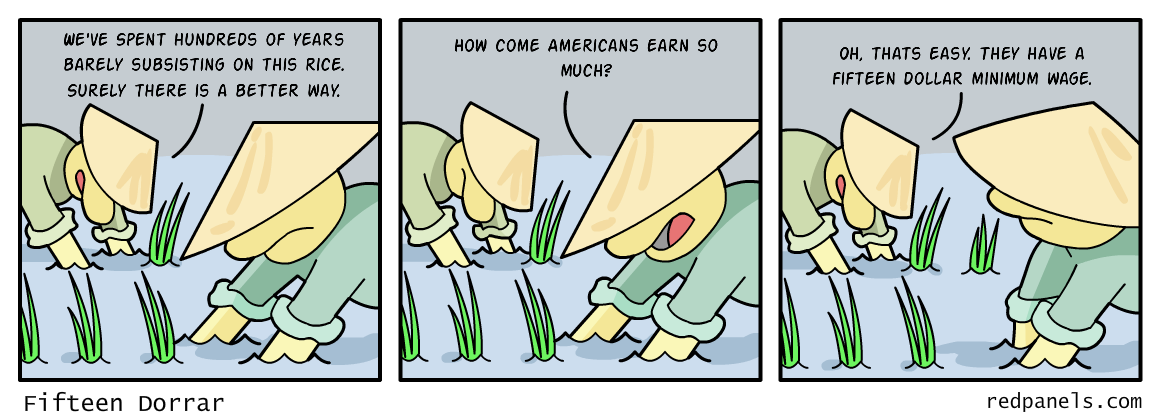I think the evidence on this point is conflicting. We seem to agree that minimum wage increases cause inflation, and inflation would reduce, if not eliminate, the gains for the remaining workers.
But I think it’s important to look at all workers, not just the remaining workers. Studies also show that the lowest-skilled workers face a significant negative impact of a minimum wage. And the remaining workers tend to be second or third income earners: high school students, stay-at-home spouses, etc., i.e. frequently workers who are otherwise better off. So the redistributive effect of the minimum wage isn’t even certain for that class of workers who do benefit.
This is a good point, a minimum wage will at most accelerate adoption that would have happened anyway. But I think it is still an effective criticism of the minimum wage: automation means more and more people won’t be able to provide labor that a machine couldn’t do at a lower cost, so the minimum wage will tend to hit fewer and fewer people. And if, as I’ve claimed, the more vulnerable workers will be the most negatively effected by these trends, then over time the minimum wage will increasingly benefit the most well-off workers at the expense of a growing class of zero marginal product workers.
I should say, I take as a given then, because no policy intervention is free, we shouldn’t implement any policy that we expect not to provide a net social benefit. If the net benefit of the minimum wage is roughly zero (and we have good empirical evidence that it is), then even without any additional negative effects like those I’m presenting here, shouldn’t we reject it? Perhaps the question is better put like this: what is the cost to society of implementing a minimum wage against which we should weigh its benefits (we seem to agree that it is not zero)?
I agree with this, and that’s a part of why I support a basic income. The minimum wage addresses the problem by making very-low-skill, low-value jobs uneconomical. A basic income addresses it by giving very-low-skilled workers a real choice about whether or not a very-low-paying, very-low-skill job is beneath them.
James, Jerky, Arminius, the actual observed outcomes of immigration conflict with what you’re saying. Studies estimate that each additional immigrant creates 2 local jobs, mostly of the sort that can’t be offshored. A report looking at violence and criminality among immigrants and comparing it native-born citizens found that immigrants are on the whole less criminal, less violent and antisocial, less of a behavior problem than their native-born counterparts (as in, 2-5 times less likely to commit crimes, be incarcerated, or reoffend after incarceration). And while the cost benefit analysis of immigration is not settled, at least some reputable studies find that on net, immigrants pay more in taxes than they do in services. This stands to reason since immigrants frequently pay for services they are ineligible to receive, like Social Security.
Carleas:
![]() ) … and so on.
) … and so on.